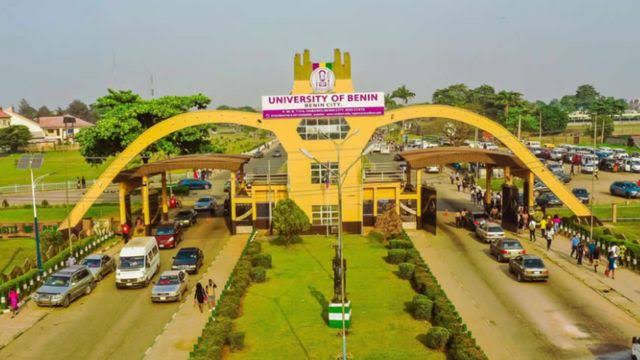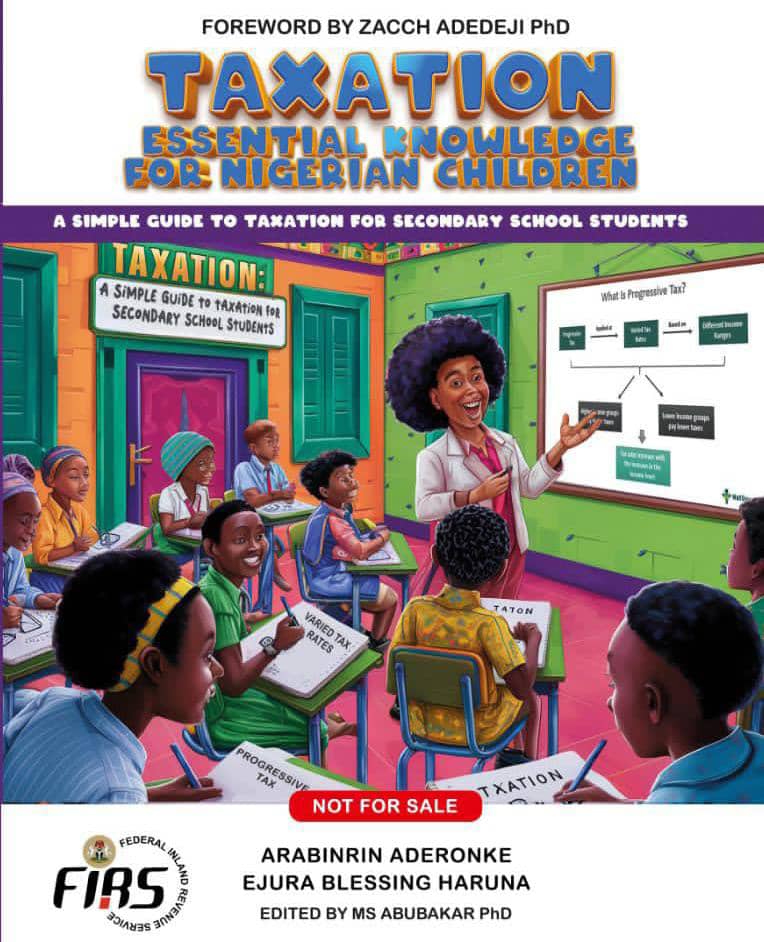Education
BSU explains why medical students were suspended

BSU explains why medical students were suspended
The Management of Benue State University (BSU), Makurdi, says all 200- to 600-level Medical Students of the institution were suspended because they planned to destroy facilities of the University.
This is contained in a press statement, signed by Tser Vanger, Principal Assistant Registrar (Information & Public Relations) of the varsity, and made available to newsmen in Makurdi on Thursday.
Read Also: NAF Announces Partial Traffic Restriction Along Nyanya-Keffi Road Saturday
The reports gathered that the university had come under serious criticism from stakeholders, civil societies and the PDP over the one-month suspension of the affected students, announced on Monday.
Reacting to the concerns raised by stakeholders over the matter, the management recalled that despite an agreement reached with the students after a series of meetings, the students reneged on the deal they endorsed themselves and resolved to boycott lectures, leaving the management with no option but to suspend them.
“And in spite of the wide condemnation of the students by their lecturers, they continued holding clandestine meetings and planning to stage a bigger protest and possibly cause destruction.
“Security reports indicated that the students had made contact with external associates to prosecute the next phase of the protest.
“Consequent upon this and the reports emanating from the Security Unit, Students Affairs and Academic Staff of the College of Health Sciences, the Management was left with no option than to suspend the 200- to 600-level students of the College for one month,” the statement indicated.
It said the University Management got wind of clandestine moves by the affected students to disrupt their academic activities over sundry grievances.
According to the statement, “Upon learning about the concerns of the students, the Vice-Chancellor, Prof. Tor Iorapuu, delegated the Deputy Vice-Chancellor (Administration), Prof Mike Odey, and other management staff to invite them for dialogue.
“The dialogue held and the only grievance of the students was their demand that 200-level medical students be relocation of to Block C. And this was appropriately handled.
“The report was to be submitted to the Vice-Chancellor on October 25, the same day the students decided to embark on the demonstration after all assurances were given to them during a meeting the previous day.
“Remaining defiant, the students marched to Government house where they were addressed by the Commissioners for Health, and Information, and the Chief of Staff to the Governor, who asked them to list their problems and choose some representatives to speak with the Governor but they refused, insisting that all of them must go in.
“It was at this point that the Governor’s aides and other officials left the students at the Government House Roundabout where the Vice-Chancellor who had also met them, advised them to return to the campus,” the statement added.
BSU explains why medical students were suspended
Education
UNIBEN Partners with OpenBinacle to Preserve African Languages

UNIBEN Partners with OpenBinacle to Preserve African Languages
……Collaboration Aims to Promote AI-Driven Language Preservation
The University of Benin (UNIBEN) has joined forces with OpenBinacle, a Nigerian-owned tech company, to advance the preservation and promotion of African languages through the use of Artificial Intelligence (AI) and Machine Translation (MT).
The partnership, formalized through a joint statement issued in Benin, focuses on standardizing and preserving indigenous languages across Nigeria and Africa. Vice-Chancellor of UNIBEN, Prof. Lilian Salami, praised the collaboration, highlighting its alignment with the university’s mission of being a globally recognized institution in research and education.
OpenBinacle’s CEO, Emmanuel Gabriel, emphasized that the initiative would foster the development of AI researchers and software developers, enhancing language translation technologies across the continent. The project aims to preserve over 2,000 African languages, providing job opportunities and technical training for students and youths.
Education
Sprezzatura Publishing Introduces Innovative Resource for Young Learners

Sprezzatura Publishing Introduces Innovative Resource for Young Learners
By Halima Abdulkadiri
Sprezzatura Publishing Limited has launched a pioneering new book titled “Taxation: Essential Knowledge for Nigerian Children,” authored by Arabinrin Aderonke and Ejura Blessing Haruna. The 147-page guide is designed to make the complex topic of taxation accessible and engaging for young readers in Nigeria.
The book opens with a foreword by Dr. Zacch Adedeji, Chairman of the Federal Inland Revenue Service (FIRS), underscoring the importance of early tax education. Dr. Adedeji highlights the role of tax knowledge in shaping financially responsible citizens, emphasizing its relevance to the nation’s democratic future.
Structured into 13 chapters, the book covers various aspects of taxation, from its historical roots to the different types of taxes and the government’s role in tax collection. The authors utilize simple language and relatable examples, making the subject approachable for children and young adults.
To further enhance learning, the book includes interactive elements such as questions and activities at the end of each chapter. This method not only reinforces key concepts but also encourages readers to actively engage with the material, fostering a deeper understanding.
“Taxation: Essential Knowledge for Nigerian Children” is being recommended for educational institutions across Nigeria, offering a valuable resource to equip young minds with the knowledge needed for their financial futures.
Education
WAEC announce 215,267 Results Over Exam Malpractices, Records 73.79% Pass Rate

WAEC announce 215,267 Results Over Exam Malpractices, Records 73.79% Pass Rate
The West African Examinations Council (WAEC) announced the release of the 2024 West African Senior School Certificate Examination (WASSCE) results on Monday, revealing that 73.79% of the candidates achieved credit passes in at least five subjects. However, the results of 215,267 candidates, representing 11.92% of the 1,805,216 candidates who took the exam, have been withheld due to various cases of examination malpractice.
Dr. Amos Dangut, Head of WAEC Nigeria, stated that the 2024 exam was conducted over seven weeks, from April 30 to June 24, across Nigeria. He noted that 1,301,941 candidates, or 72.12%, obtained credits in five subjects, including English Language and Mathematics. Additionally, 93.39% of the candidates had their results fully processed and released, while 6.61% are still under processing.
Dangut attributed the withholding of results to incidents of malpractice, including the use of cell phones in examination halls and organized cheating in certain schools. The number of withheld results this year is 4.37% lower than in 2023, where 16.29% of results were withheld.
Investigations into the malpractice cases are ongoing, and decisions will be made by the appropriate WAEC committee. Candidates whose results have been withheld will be informed through their schools, and they have the option to appeal via the WAEC website.
Furthermore, Dangut highlighted that the results of candidates from states owing the council will not be released until the debts are settled. The WASSCE was conducted in four WAEC member countries: Nigeria, Gambia, Sierra Leone, and Liberia.
-

 Business1 year ago
Business1 year agoNew Rates: ‘I borrowed money to finance this business…’ – Petroleum Marketer cries out over Non-supply of products by the NNPCL
-

 Health5 months ago
Health5 months agoOnly 58,000 doctors renewed licence out of 130,000 registered doctors – MDCN
-

 Entertainment2 months ago
Entertainment2 months agoBBNaija Season 9: TAMI Duo Evicted After Low Vote Count
-

 Defence & Security1 month ago
Defence & Security1 month agoOrganisers Demand IGP’s Dismissal Over Fatal Protest Crackdown
-

 Defence & Security1 month ago
Defence & Security1 month ago“Defence Chief Praises Strong Inter-Service Cooperation for Operational Successes”
-

 Business2 years ago
Business2 years agoNew Naira Notes: We Have No Information On The Supreme Court Ruling – CBN
-

 Opinion2 years ago
Opinion2 years agoAddressing Nigeria’s food security challenge through eco-friendly agriculture
-

 Weather2 months ago
Weather2 months agoNiMet Forecasts 3 Days Thunderstorms, Rain Nationwide


